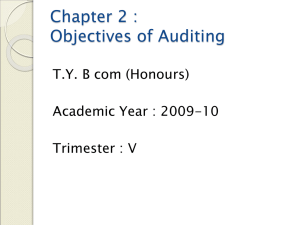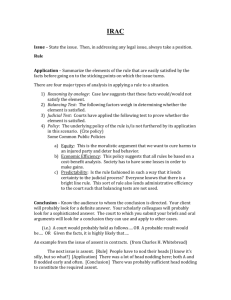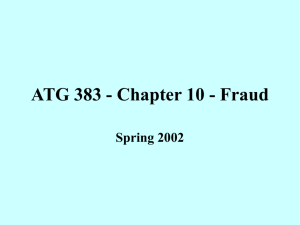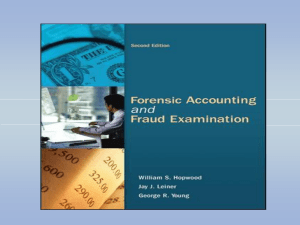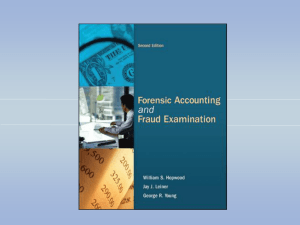Fraud Schemes and Red Flags of Fraud
advertisement
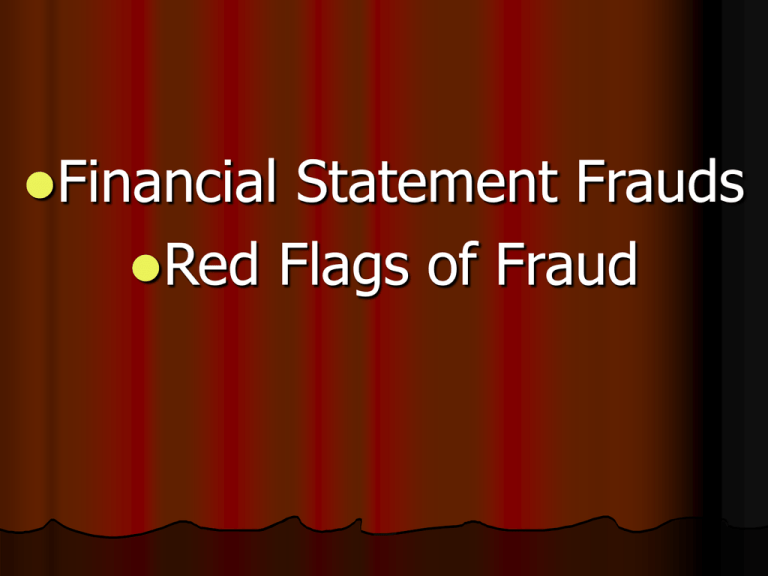
Financial Statement Frauds Red Flags of Fraud Financial Statement Frauds 1. 2. 3. 4. 5. Revenue/Accounts Receivable Frauds (Global Crossing, Quest, ZZZZ Best) Inventory/Cost of Goods Sold Frauds (PharMor) Understating Liability/Expense Frauds (Enron) Overstating Asset Frauds (WorldCom) Overall Misrepresentation (Bre-X Minerals) 1. Revenue Related Financial Statement Frauds By far, the most common accounts manipulated when perpetrating financial statement fraud are revenues and/or accounts receivable. Accounts Receivable Revenues (Income Assets ) xxx xxx Revenue-Related Transactions and Frauds See Excel handout #1 2. Overstating Inventory The second most common way to commit financial statement fraud is to overstate inventory. Beginning Inventory Purchases Goods Available for sale Ending Inventory Cost of Goods Sold Income OK OK OK High Low High Inventory/Cost of Goods Sold Frauds See Excel handout #2 3. Understating Liability Frauds Not recording accounts payable Not recording accrued liabilities Recording unearned revenues as earned Not recording warranty or service liabilities Not recording loans or keep liabilities off the books Not recording contingent liabilities 4. Asset Overstatement Frauds Overstatement of Current Assets (e.g. Marketable Securities) Overstating Pension Assets Capitalizing as assets amounts that should be expensed Failing to record depreciation/amortization expense Overstating assets through mergers and acquisitions Overstating inventory and receivables (covered earlier) 5. Disclosure Frauds Three Categories of Disclosure Frauds: 1. Overall misrepresentations about the nature of the company or its products, usually made through news reports, interviews, annual reports, and elsewhere 2. Misrepresentations in the management discussions and other non-financial statement sections of annual reports, and other reports 3. Misrepresentations in the footnotes to the financial statements RED FLAGS OF FRAUD Changes in employee lifestyle, habits and behaviour Decline in employee morale and/or attendance Operating on a crisis basis Unexplained variances One employees “does it all” and wants to control everything RED FLAGS OF FRAUD (continued) Missing, altered, or perfect documents Invoice items do not appear consistent Excessive rush or emergency transactions Vendors with generic names and/or Post Office Boxes as addresses Payments made from non-original documentation
